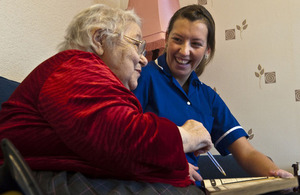Public Health Outcomes Framework – quarterly update published
This update contains new baseline information for 11 indicators as well as more recent data for 12 indicators.

Public Health England (PHE) has published the latest update to the Public Health Outcomes Framework (PHOF) data tool today.
This update contains new baseline information for 11 indicators as well as more recent data for 12 indicators. In addition, it includes lower tier local authority data for 4 indicators, inequalities breakdowns for 3 indicators and changes to 3 indicators to take account of population and data revisions.
The data are presented in an interactive data tool which allows users to view data in a user-friendly format and in particular to:
- benchmark local authorities against the England average
- compare local authorities against other authorities in the region and, for the first time, PHE Centre
- download a summary PDF for a local authority
- download data for further local analysis
Some of the data included in this release have already been published elsewhere. However, data for the overarching indicators on inequalities in life expectancy are included for the first time and contain new provisional information on:
-
inequalities in male and female life expectancy within England as a whole. Male life expectancy in the least deprived small areas in England in the years 2009 to 2011 was 9.7 years higher than life expectancy in the most deprived areas. For females, this difference was 7.2 years.
-
inequalities in male and female life expectancy within each upper-tier local authority
Professor John Newton, Chief Knowledge Officer at PHE said:
PHE is committed to working with local authorities and others to tackle the stark inequalities that this update has revealed. Practical initiatives are required to reduce the striking disparity in how long people live in different parts of the country.
For technical and data queries please email [email protected]. For policy-related queries please email [email protected].